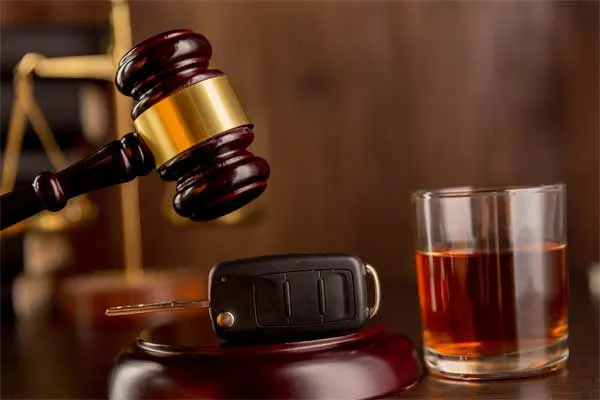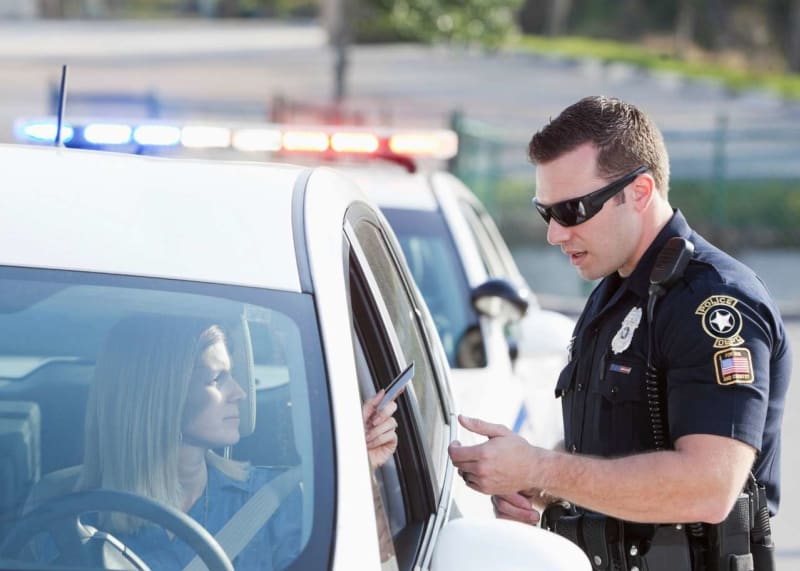Getting pulled over for a suspected DUI can be a scary experience. You might be asked to take a breathalyzer test or a blood test. But what happens if you refuse or the police don’t get a chemical test? Is it still possible to be charged with drunk driving? Many people believe that without a blood or breath test, the case is a slam dunk for the defense. That’s not always true. Driving under the influence (DUI) charges can still stand based on other evidence.
If you’re facing this situation, it’s crucial to understand your legal rights and the legal process. A skilled DUI lawyer can help you navigate these complexities. If you’re facing a DUI charge, contact Dohman Law today for a confidential case review and learn how we can protect your rights.
Understanding DUI: The Basics
A DUI charge, also known as intoxicated driving or impaired driving, means a person is operating a vehicle while their ability to drive is compromised by alcohol or drugs. In most states, including Illinois, there’s a legal limit of a blood alcohol concentration (BAC) of 0.08%. This is what’s measured by a breathalyzer test or a blood test. While these tests are powerful tools for the prosecutor, they aren’t the only ones. The entire DUI investigation begins long before any chemical test.

Probable Cause for DUI Arrests
For a law enforcement officer to even stop you, they need a reason. This is called probable cause. This could be a traffic violation like weaving, speeding, or driving erratically. Once stopped, the police officers will start looking for signs of impairment. This is where the other evidence comes in.
The Role of Observational Evidence
A DUI case can be built on what the law enforcement officers see and hear. This is often called circumstantial evidence. It’s not a direct measurement of your BAC, but it points to the conclusion that you were impaired. A skilled criminal defense attorney knows how to challenge this type of evidence.
Types of Evidence in DUI Cases
- Officer’s Observations: The arresting officer will make notes about your appearance, speech, and behavior. Did you have bloodshot eyes? Was your speech slurred? Was there a smell of alcohol? These officer observations are a key part of the police report.
- Field Sobriety Tests: These tests are meant to check your physical coordination and ability to follow instructions. The most common ones are the one-leg stand, the walk-and-turn test, and the Horizontal Gaze Nystagmus Test. While they are called “standardized field sobriety tests,” they can be tricky to perform perfectly, even when sober.
- Preliminary Alcohol Screening (PAS) Test: Some officers might ask you to take a portable breathalyzer at the scene. This is different from the official chemical test at the station. In some places, you can refuse the Preliminary Alcohol Screening Test without immediate penalty.
- Video Evidence: This can be a huge help for both sides. Police dashcam footage or officer body camera recordings can show the entire stop, from your driving behavior to your performance on the field sobriety tests. This video footage is often crucial to a defense strategy.
Learn More: Refusing a Field Sobriety Test in Illinois
Defending Against DUI Charges Without a Chemical Test
A criminal defense lawyer can still put up a strong fight, even without a blood or breath test. The key is to poke holes in the prosecutor’s case.

Challenging Evidence Admissibility
A lawyer can argue that the evidence gathered by the police was not obtained legally. This could be due to a faulty stop, a failure to read you your Miranda rights, or improper procedures during the arrest. If evidence is suppressed, it can’t be used against you.
Arguing Against Officer’s Observations
Your DUI defense attorneys can question the officer’s testimony. Were they properly trained to conduct the field sobriety tests? Were there other reasons for your appearance or behavior? For example, a medical condition, fatigue, or even nervousness can mimic signs of impairment.
Evaluating Field Sobriety Test Validity
Field sobriety tests are not foolproof. An experienced attorney can challenge their reliability. Factors like bad weather, uneven ground, or even the shoes you were wearing could affect your performance. Your lawyer can also argue that the tests themselves are not enough to prove guilt beyond a reasonable doubt.
Related: Types of field sobriety tests and what to expect from them
Consequences of Refusing Chemical Tests
Many people think that refusing a chemical test is a good idea. However, due to implied consent laws, refusing can have its own serious consequences.
Legal and Administrative Penalties
- License Suspension: In Illinois, refusing a blood or chemical test will lead to an automatic license suspension. This is a civil penalty and is separate from the criminal case.
- Evidence of Guilt: While the prosecutor can’t use a test result against you, they can tell the jury that you refused the test. They might argue that you refused because you knew you were guilty.
- Jail Time: A refusal does not prevent you from being charged with a DUI. A conviction can still lead to jail time and fines.
Impact on DUI Defense Strategy
Refusal complicates the case. On one hand, it denies the prosecutor the strongest piece of evidence (the BAC reading). On the other hand, it gives them a new argument to use against you that you refused because you were trying to hide your impairment. A good DUI defense attorney can help you decide if refusing is the right strategy for your specific case.
Importance of Legal Representation
Whether or not you took a blood or breath test, having a qualified DUI defense attorney on your side is critical.
- Navigating the Legal Process: The legal process is complex. From the initial arrest process to court hearings, a lawyer can guide you every step of the way.
- Developing a Strong Defense Strategy: A lawyer can review all the evidence, including the police report, video evidence, and witness statements. They can find weaknesses in the prosecution’s case and build a strong defense.
- Negotiating with the Prosecutor: A lawyer can negotiate with the district attorney to get the best possible outcome, which might include a reduced charge or a plea bargain.
- Protecting Your Rights: An attorney ensures your legal rights are not violated throughout the process. They can file motions to suppress evidence if the police acted improperly.

Finding the Right Attorney
When facing a DUI charge, you need a lawyer who understands the local laws and the court system. For those in Rolling Meadows, a lawyer from Dohman Law can provide the dedicated representation you need. We understand the complexities of DUI defense and can build a strategy tailored to your situation. Don’t face this alone.
Don’t Face DUI Charges Alone
A DUI charge is serious, and it can affect your life for years to come. Even without a chemical test, the prosecutor can still pursue a conviction using other evidence. Officer testimony, video footage, and your performance on standardized field sobriety tests can all be used against you. Don’t assume your case is hopeless just because you refused or the police didn’t get a test. A strong legal defense is still possible.
If you’re facing a DUI charge, contact Dohman Law today. We can help you understand your options and fight for the best possible outcome.


